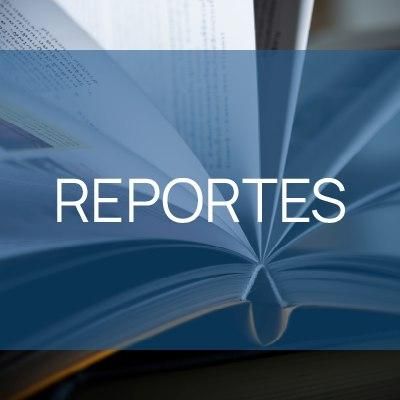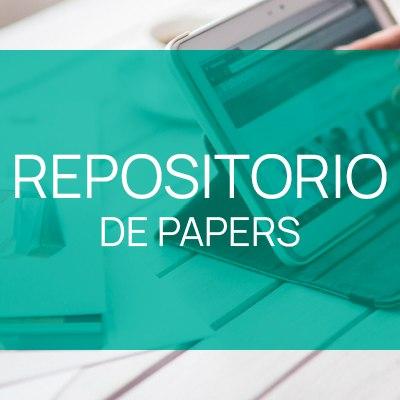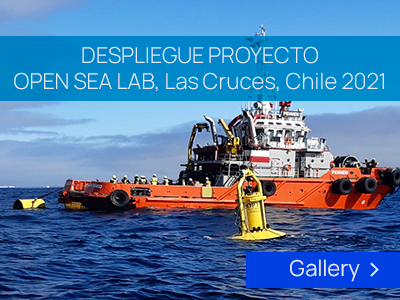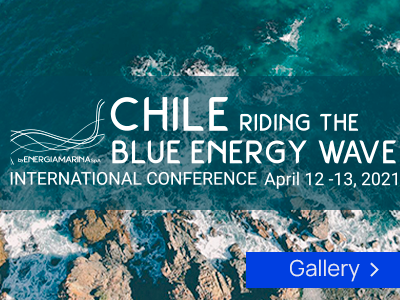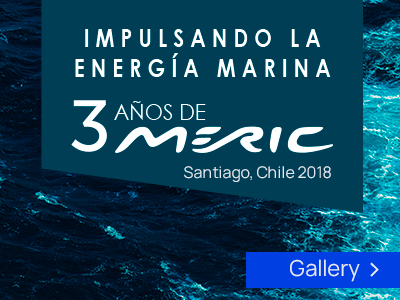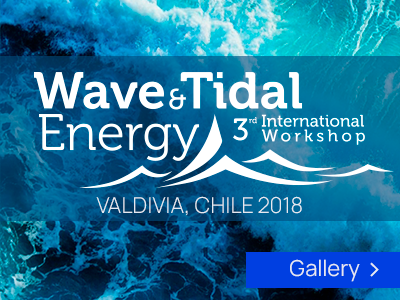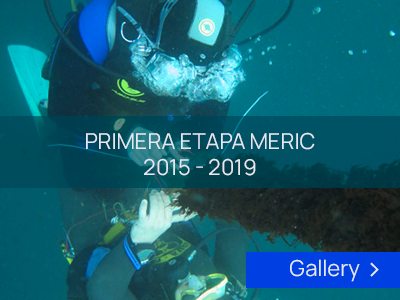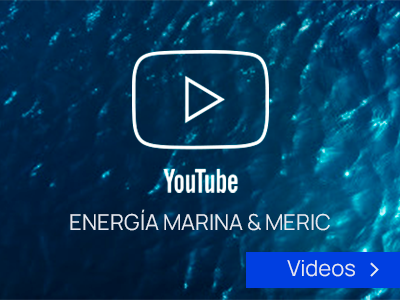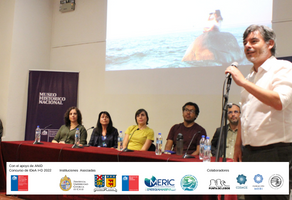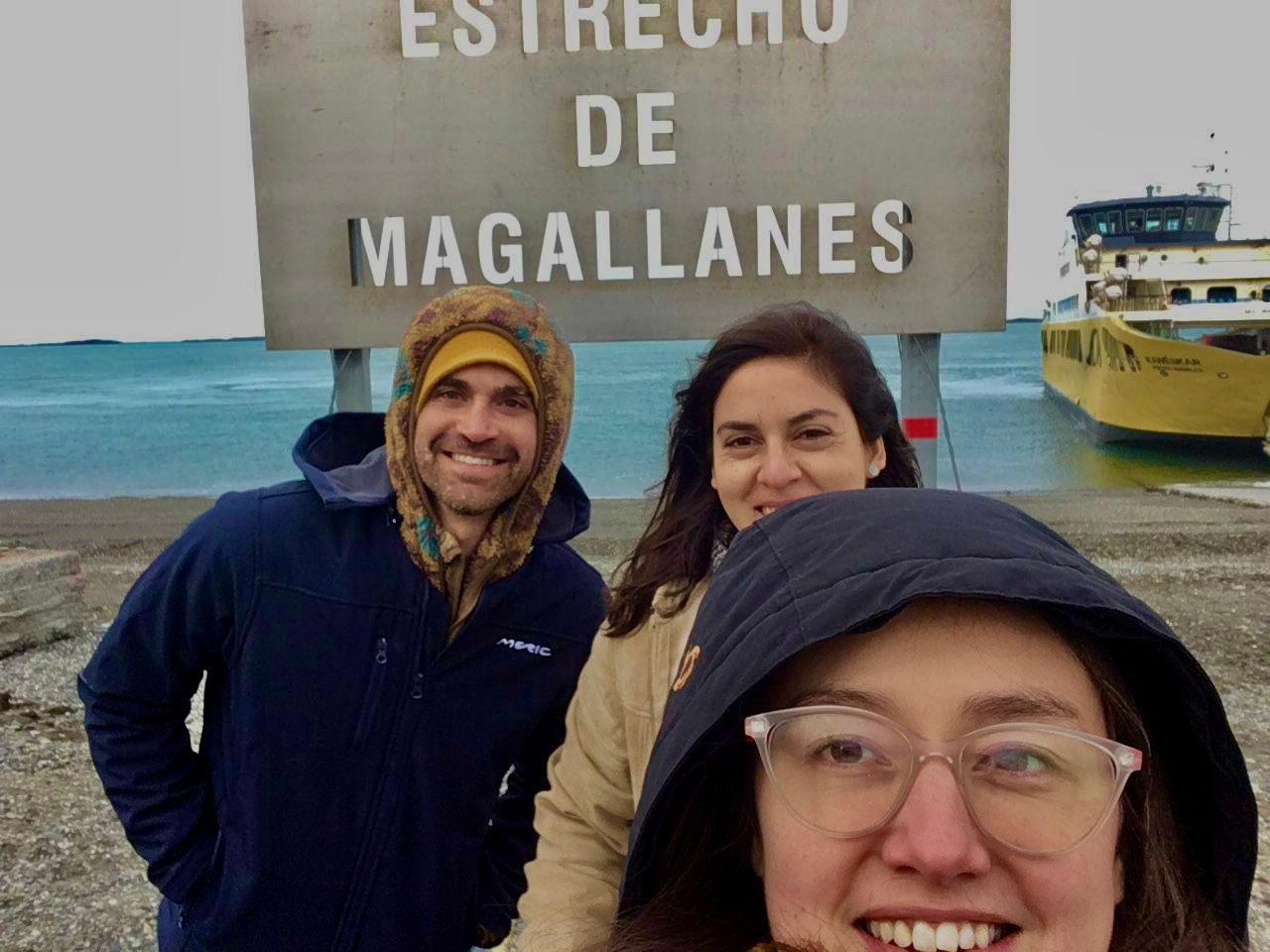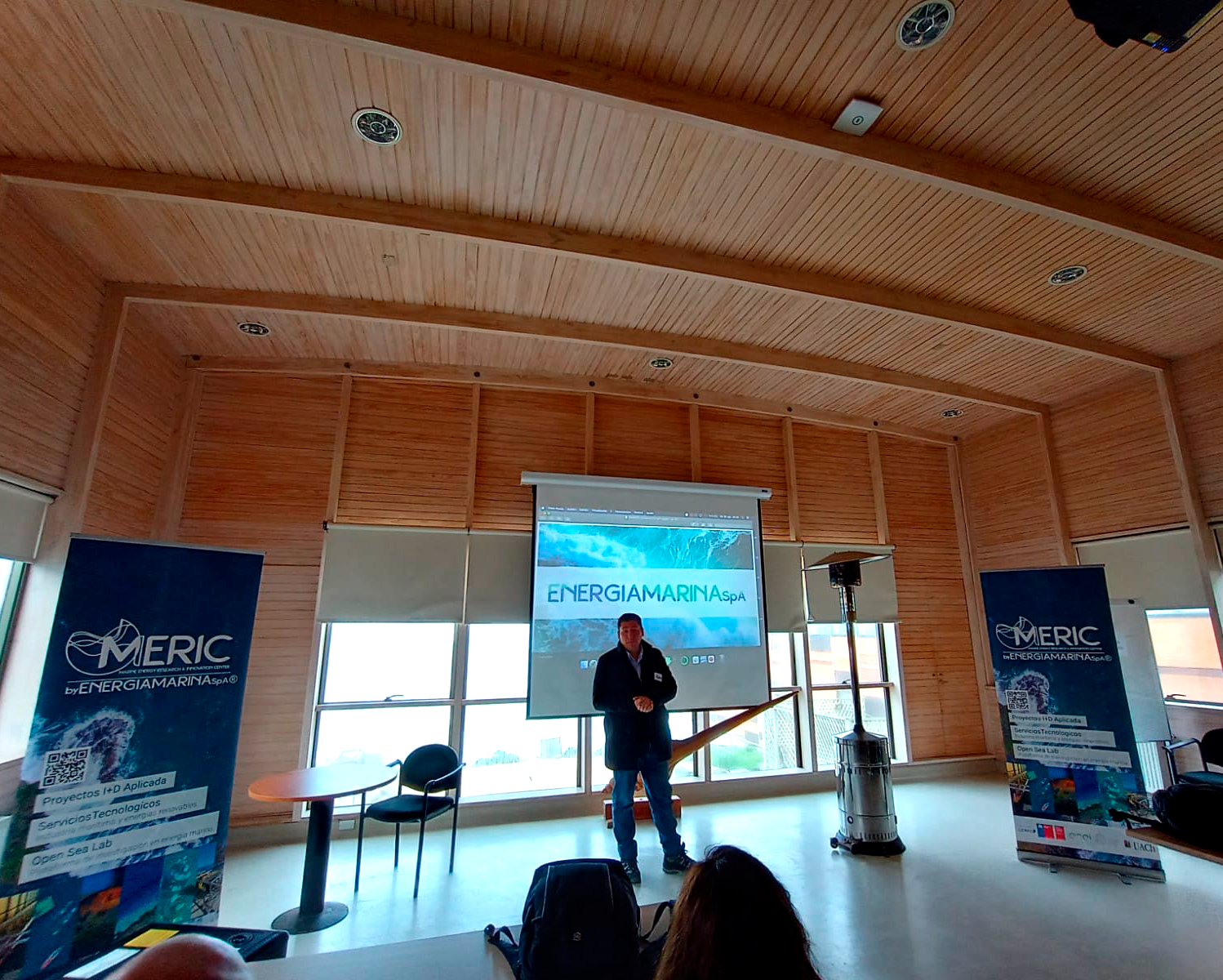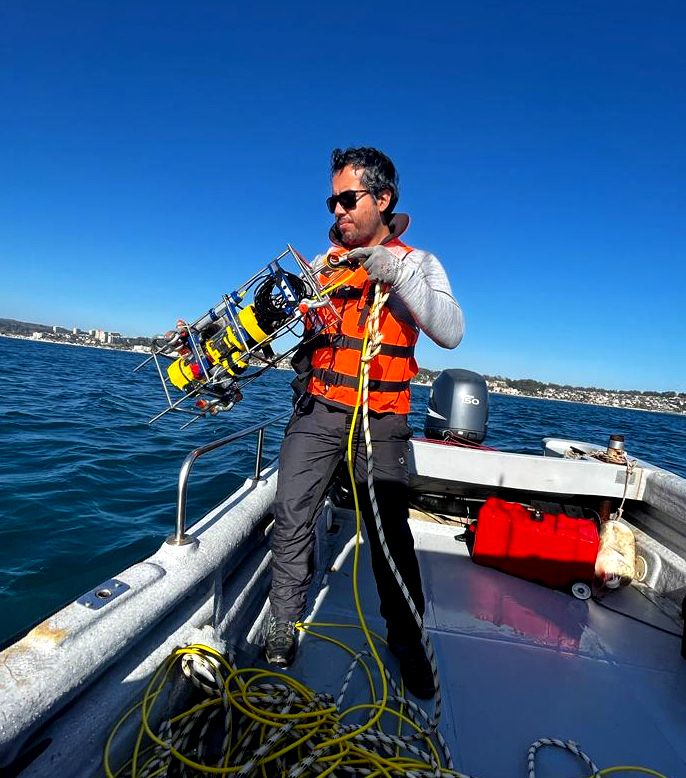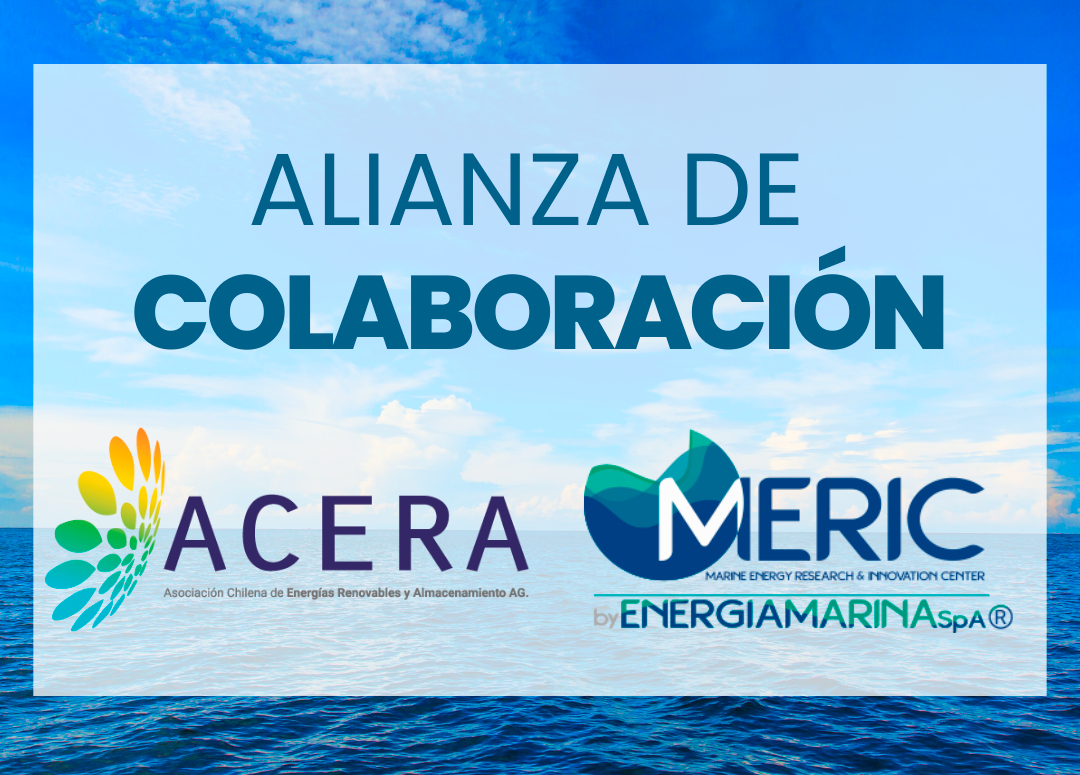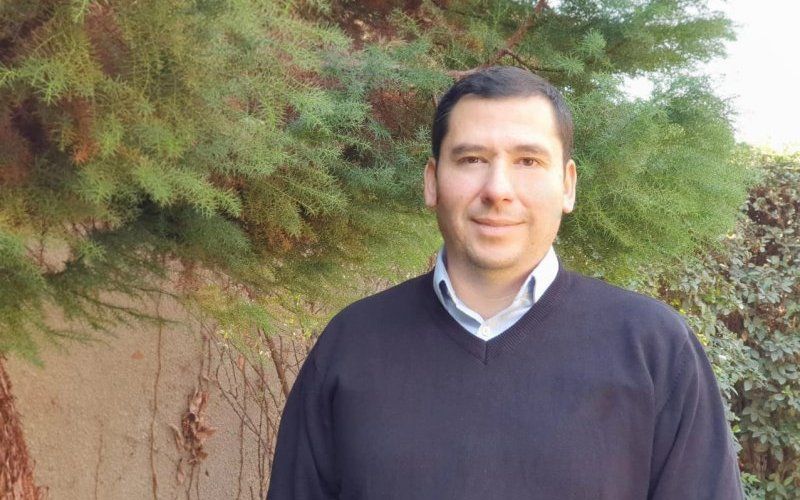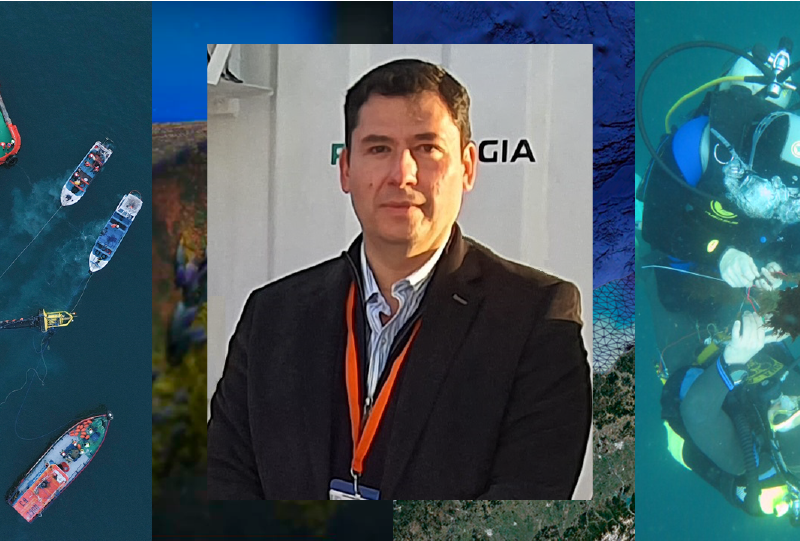3. Papers
Centro Tecnológico MERIC
Buscar por "Título" o ordenar por columna interactuando con los encabezados
| Author | Year | Title | Magazine | Vol | Pages | Link |
|---|---|---|---|---|---|---|
| Diego A. Fischer, Leslie Daille, Javiera Aguirre, Carlos Galarce, Francisco Armijo, Rodrigo De la Iglesia, Gonzalo Pizarro, Ignacio Vargas, Magdalena Walczak | 2016 | Corrosion of Stainless Steel in Simulated Tide of Fresh Natural Seawater of South East Pacific | Electrochem | 11 | 6873-6885 | Link |
| Eric Blayo, Antoine Rousseau, Manel Tayachi | 2017 | Boundary conditions and Schwarz waveform relaxation method for linear viscous Shallow Water equations in hydrodynamics | SMAI-JCM | 3 | 117-137 | Link |
| Felipe Lucero, Patricio A. Catalan, Alvaro Ossandón, Jose Beyá, Andres Puelma, Luis Zamorano | 2017 | Wave energy assessment in the central-south coast of Chile | Renewable Energy | 114,A | 120-131 | Link |
| Javiera Aguirre, Leslie Daille, Diego A. Fischer, Carlos Galarce, Gonzalo Pizarro, Ignacio Vargas, Magdalena Walczak, Rodrigo de la Iglesia, Francisco Armijo | 2017 | Study of poly(3,4-ethylendioxythiphene) as a coating for mitigation of biocorrosion of AISI 304 stainless steel in natural seawater | Progress in Organic Coatings | 113 | 175-184 | Link |
| Gonzalo Tampier, Laura Grueter | 2017 | Hydrodynamic analysis of a heaving wave energy converter | International Journal of Marine Energy | 19 | 304-318 | Link |
| GonzaloTampier, Claudio Troncoso, Federico Zilic | 2017 | Numerical analysis of a diffuser-augmented hydrokinetic turbine | Ocean Engineering | 145 | 138-147 | Link |
| V.Villalóna, D.Wattsab, R.Cienfuegos | 2018 | Assessment of the power potential extraction in the Chilean Chacao channel | Renewable Energy | 131 | 585-596 | Link |
| Cristina Ruano-Chamorroa, Juan Carlos Castilla, Stefan Gelcich | 2018 | Human dimensions of marine hydrokinetic energies: Current knowledge and research gaps | Renewable and Sustainable Energy Reviews | 82,3 | 1979-1989 | Link |
| Joao Guilherme Caldas Steinstraesser, Rodrigo Cienfuegos, José Daniel Galaz Mora, Antoine Rousseau | 2018 | A Schwarz-based domain decomposition method for the dispersion equation | JAAC | 8,3 | 859-872 | Link |
| Joao Guilherme Caldas Steinstraesser, Gaspard Kemlin, Antoine Rousseau | 2019 | A Domain Decomposition Method for Linearized Boussinesq-Type Equations | Global Science Press | 52,3 | 320-340 | Link |
| Gonzalo Tampier, Federico Zilic | 2019 | Blade-resolved CFD analysis and validation of blockage correction methods for tidal turbines | Advances in Renewable Energies Offshore | 137-142 | Link | |
| Diego A. Fischera, Ignacio T.Vargasa, Gonzalo E.Pizarroa, Francisco Armijo, Magdalena Walczak | 2019 | The effect of scan rate on the precision of determining corrosion current by Tafel extrapolation: A numerical study on the example of pure Cu in chloride containing medium | Electrochimica Acta | 313 | 457-467 | Link |
| Sergio A. Navarrete, Mirtala Parragué, Nicoles Osiadacz, Francisca Rojas, Jéssica Bonicelli, Miriam Fernández, Clara Arboleda-Baena, Alejandro Pérez-Matus, Randy Finke | 2019 | Abundance, composition and succession of sessile subtidal assemblages in high wave-energy environments of Central Chile: Temporal and depth variation | Journal of Experimental Marine Biology and Ecology | 512 | 51-62 | Link |
| Daniel Gajardo, Cristián Escauriazaa, David M. Ingram | 2019 | Capturing the development and interactions of wakes in tidal turbine arrays using a coupled BEM-DES model | Ocean Engineering | 181 | 71-88 | Link |
| Clemente Gotelli, Mirko Musa, Michele Guala, Cristián Escauriaza | 2019 | Experimental and Numerical Investigation of Wake Interactions of Marine Hydrokinetic Turbines | Energies | 12,16 | 3188 | Link |
| Karina Soto-Rivas, David Richter, Cristian Escauriaza | 2019 | A Formulation of the Thrust Coefficient for Representing Finite-Sized Farms of Tidal Energy Converters | Energies | 12,20 | 3861 | Link |
| Gabriela Flores, Rodrigo Cienfuegos, Sergio A. Navarrete | 2019 | Beyond tides: surge-dominated submersion regimes on rocky shores of central Chile | Electronic Supplementary Material for | 166,92 | 1-7 | Link |
| Leslie K. Daille, Javiera Aguirre, Diego Fischer, Carlos Galarce, Francisco Armijo, Gonzalo E. Pizarro, Magdalena Walczak, Rodrigo De la Iglesia, Ignacio T. Vargas | 2020 | Effect of Tidal Cycles on Bacterial Biofilm Formation and Biocorrosion of Stainless Steel AISI 316L | Journal of Marine Science and Engineering | 8,2 | 124 | Link |
| Ottavio Mattia Mazzaretto, Felipe Lucero, Giovanni Besio, Rodrigo Cienfuegos | 2020 | Perspectives for harnessing the energetic persistent high swells reaching the coast of Chile | Renewable Energy | 159 | 494-505 | Link |
| María José De La Fuente, Leslie K. Daille, Rodrigo De la Iglesia, Magdalena Walczak, Francisco Armijo, Gonzalo E. Pizarro, Ignacio T. Vargas | 2020 | Electrochemical Bacterial Enrichment from Natural Seawater and Its Implications in Biocorrosion of Stainless-Steel Electrodes | Materials | 10,13 | 2327 | Link |
| Luis Caro-Lara, Esteban Ramos-Moore, Ignacio T. Vargas, Magdalena Walczak, Christian Fuentes, Andrea V. Gómez, Nelson P. Barrera, Javiera Castillo, Gonzalo Pizarro | 2021 | Initial adhesion suppression of biofilm-forming and copper-tolerant bacterium Variovorax sp. on laser microtextured copper surfaces | Colloids and Surfaces B: Biointerfaces | 202 | 111656 | Link |
| Sergio A. Navarrete, Mirtala Parragué, Nicoles Osiadacz, Francisca Rojas, Jéssica Bonicelli, Miriam Fernández, Clara Arboleda-Baena, Randy Finke, Simone Baldanzi | 2021 | Susceptibility of different materials and antifouling coating to macrofouling organisms in a high wave-energy environment | The Journal of Ocean Technology | 15 | 70-91 | Link |
| Rafael Almar, Erwin W. J. Bergsma, Patricio A. Catalán, Rodrigo Cienfuegos, Leandro Suárez, Felipe Lucero, Alexandre Nicolae Lerma, Franck Desmazes, Eleonora Perugini, Margaret | 2021 | Sea State from Single Optical Images: A Methodology to Derive Wind-Generated Ocean Waves from Cameras, Drones and Satellites | Remote Sensing | 13 | 679 | Link |
| Jorge Sandoval, Karina Soto-Rivas, Clemente Gotelli, Cristián Escauriaza | 2021 | Modeling the wake dynamics of a marine hydrokinetic turbine using different actuator representations | Ocean Engineering | 222 | 108584 | Link |
| Simon Baldanzi, Ignacio Vargas, Francisco Armijo, Miriam Fernández, Sergio Navarrete | 2021 | Experimental Assessment of a Conducting Polymer (PEDOT) and Microbial Biofilms as Deterrents and Facilitators of Macro-Biofouling: Larval Settlement of the Barnacle Notobalanus flosculus (Darwin, 1854) from Central Chile | Journal of Marine Science and Engineering | 9 | 82 | Link |
| María José De La Fuente, Rodrigo De la Iglesia, Laura Farias, Holger Daims, Michael Lukumbuzya, Ignacio T. Vargas | 2021 | Electrochemical enrichment of marine denitrifying bacteria to enhance nitrate metabolization in seawater | Journal of Environmental Chemical Engineering | 9 | 105604 | Link |
| Camila Canales, Carlos Galarce, Francisca Rubio, Fabiola Pineda, Javiera Anguita, Ramón Barros, Mirtala Parragué, Leslie K. Daille, Javiera Aguirre, Francisco Armijo, Gonzalo E. Pizarro, Magdalena Walczak, Rodrigo De la Iglesia, Sergio A. Navarrete, Ignacio T. Vargas | 2021 | Testing the Test: A Comparative Study of Marine Microbial Corrosion under Laboratory and Field Conditions | ACS OMEGA | 6 | 13496-13507 | Link |
2. Reportes
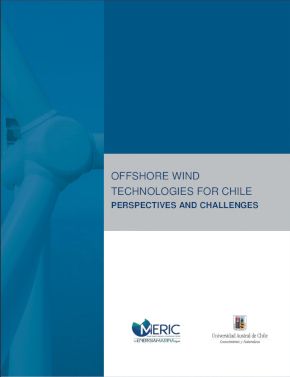
OFFSHORE WIND TECHNOLOGIES FOR CHILE
Perspectives and Challenges
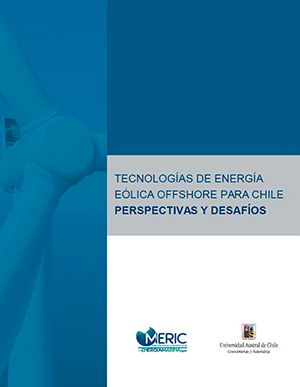
TECNOLOGÍAS DE ENERGÍA EÓLICA OFFSHORE PARA CHILE
Perspectivas y Desafíos
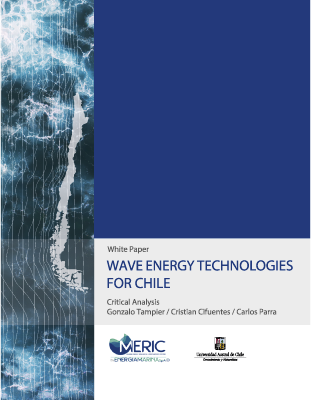
NEW STUDY, DIC 2021
Wave energy technologies for Chile.
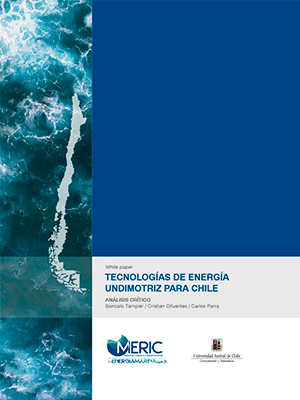
NUEVO ESTUDIO, DIC 2021
Tecnologías de energía undimotriz para Chile.
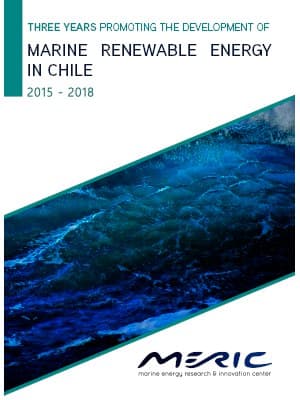
Three years promoting the development of marine renewable energy in Chile.
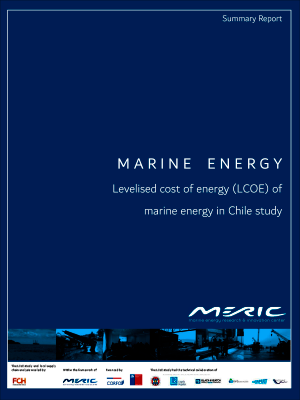
Marine Energy, Levelised cost of energy (LCOE) of marine energy in Chile study.
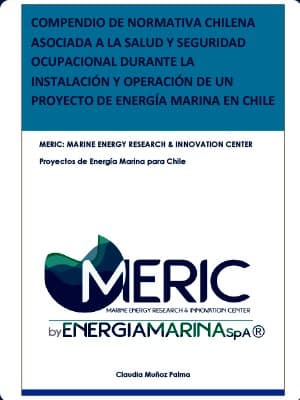
Compendio de Normativa Chilena asociada a a la salud y seguridad ocupacional durante la instalación y operación de un proyecto de energía marina en Chile
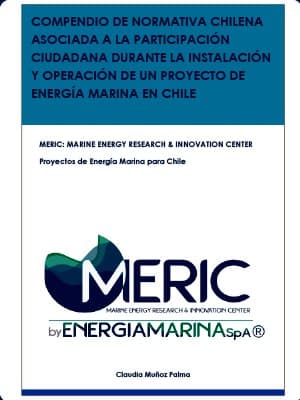
Compendio de Normativa Chilena asociada a la participación ciudadana durante la instalación y operación de un proyecto de energía marina en Chile.
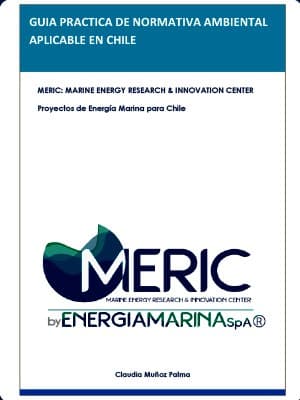
Guía práctica de Normativa Ambiental aplicable en Chile.
1. Noticias
NOTICIAS DESTACADAS
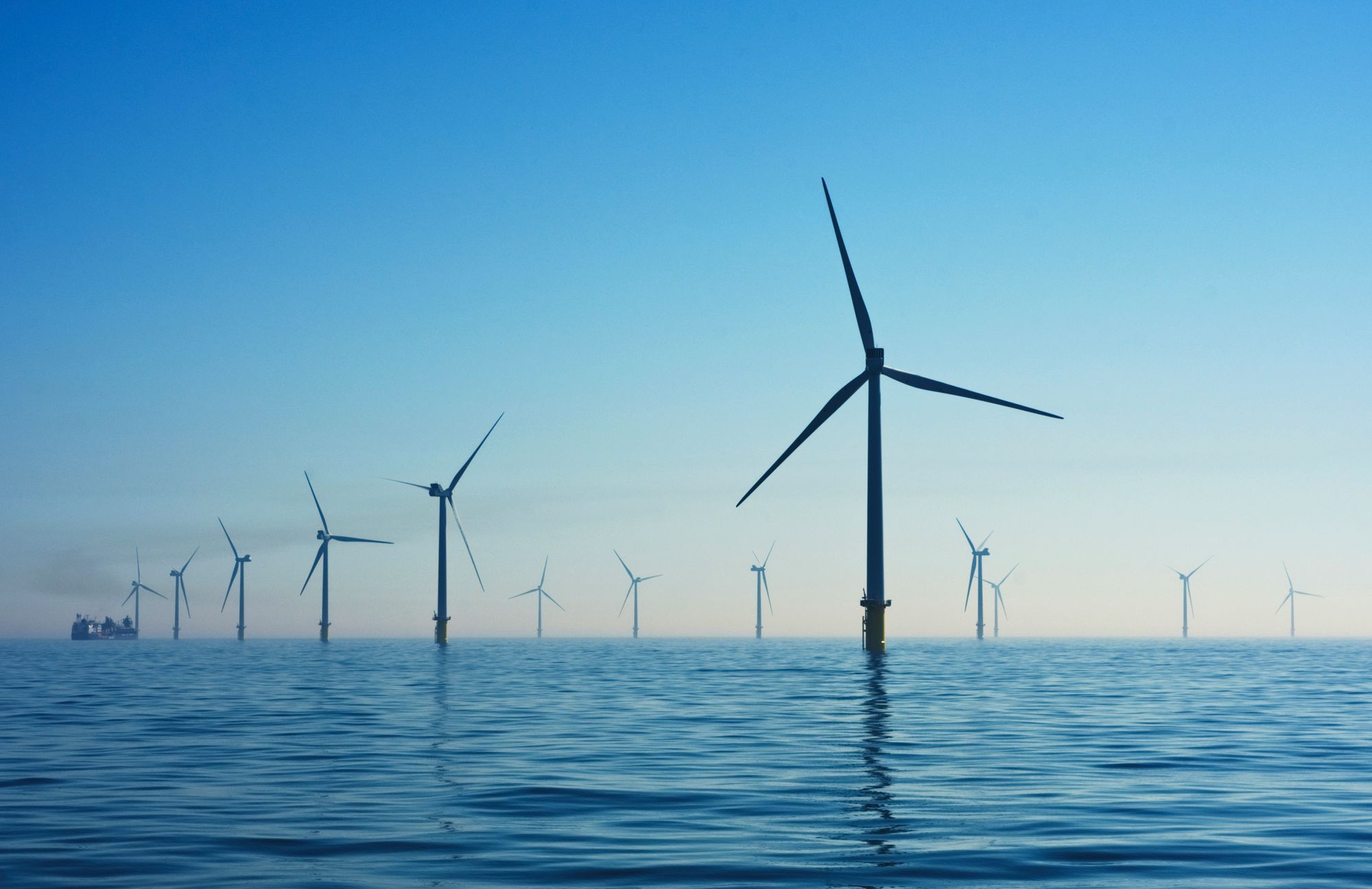
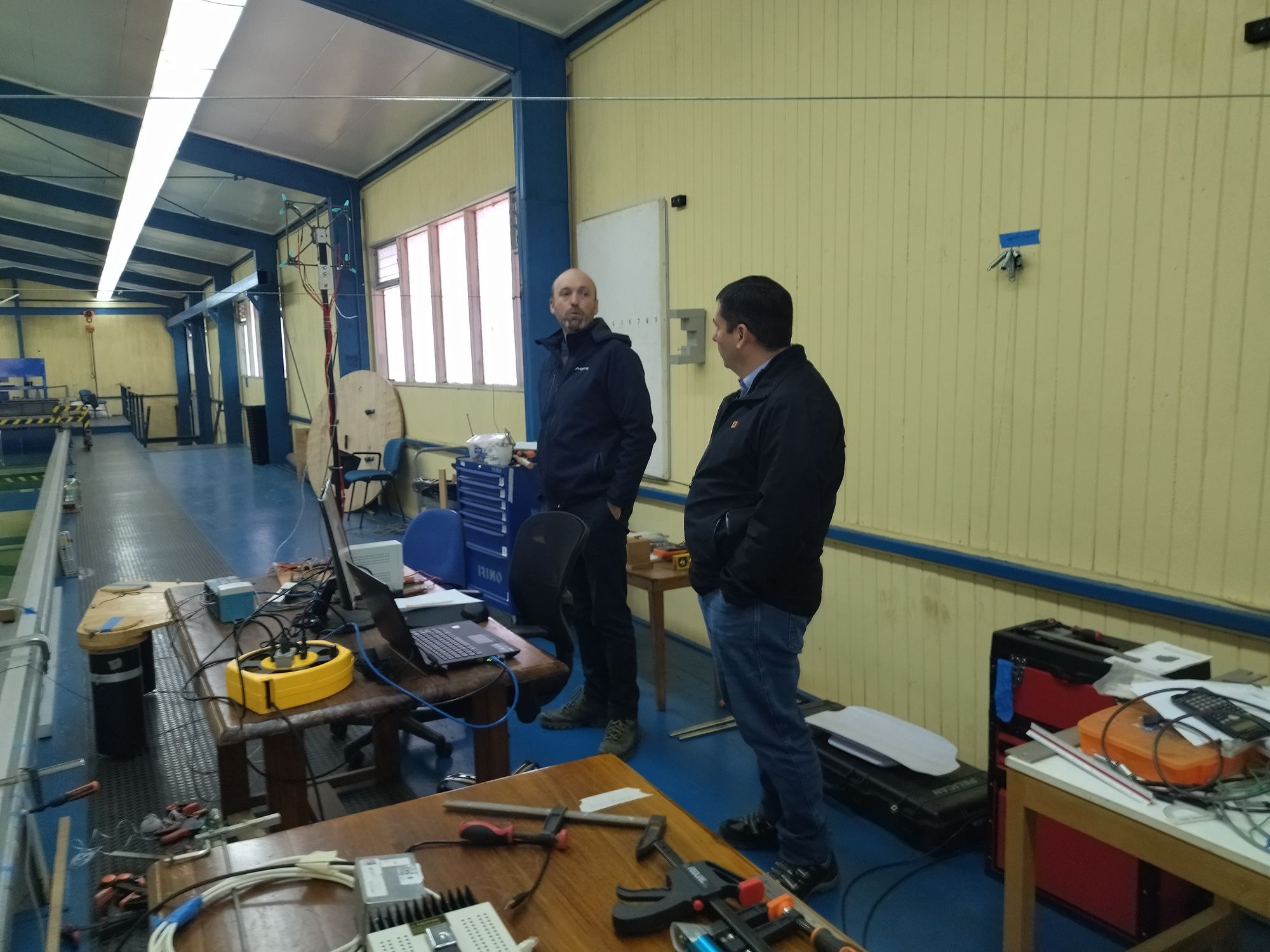
Nota
Rodrigo Paredes, Director Ejecutivo, se reúne con el equipo de la Universidad Austral de Chile.
03 noviembre, 2022
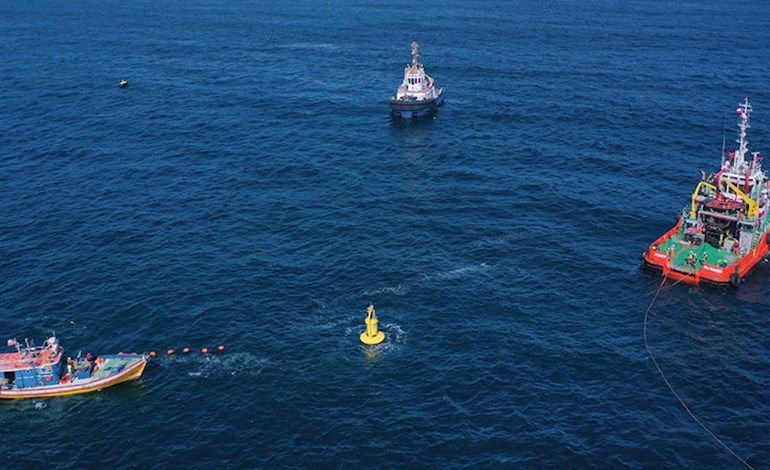
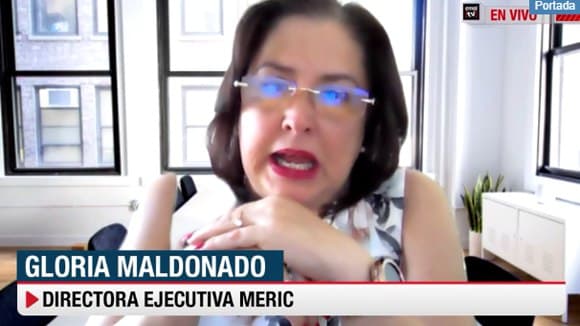
Nota de prensa
Maldonado: "No dudo que de aquí a 5 años vamos a ser jugador de clase mundial en energías marinas"
30 abril, 2021
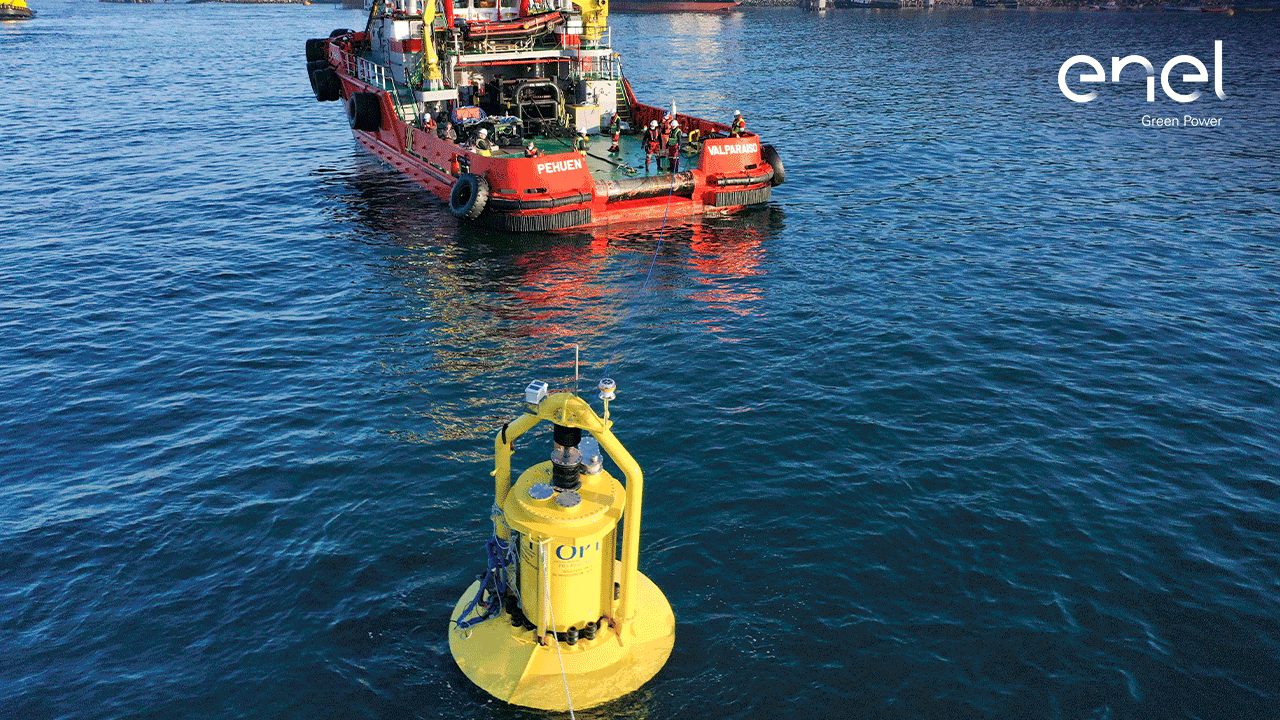
Nota de prensa
Enel Green Power instala en Chile primer convertidor a escala completa de energía de olas
30 abril, 2021
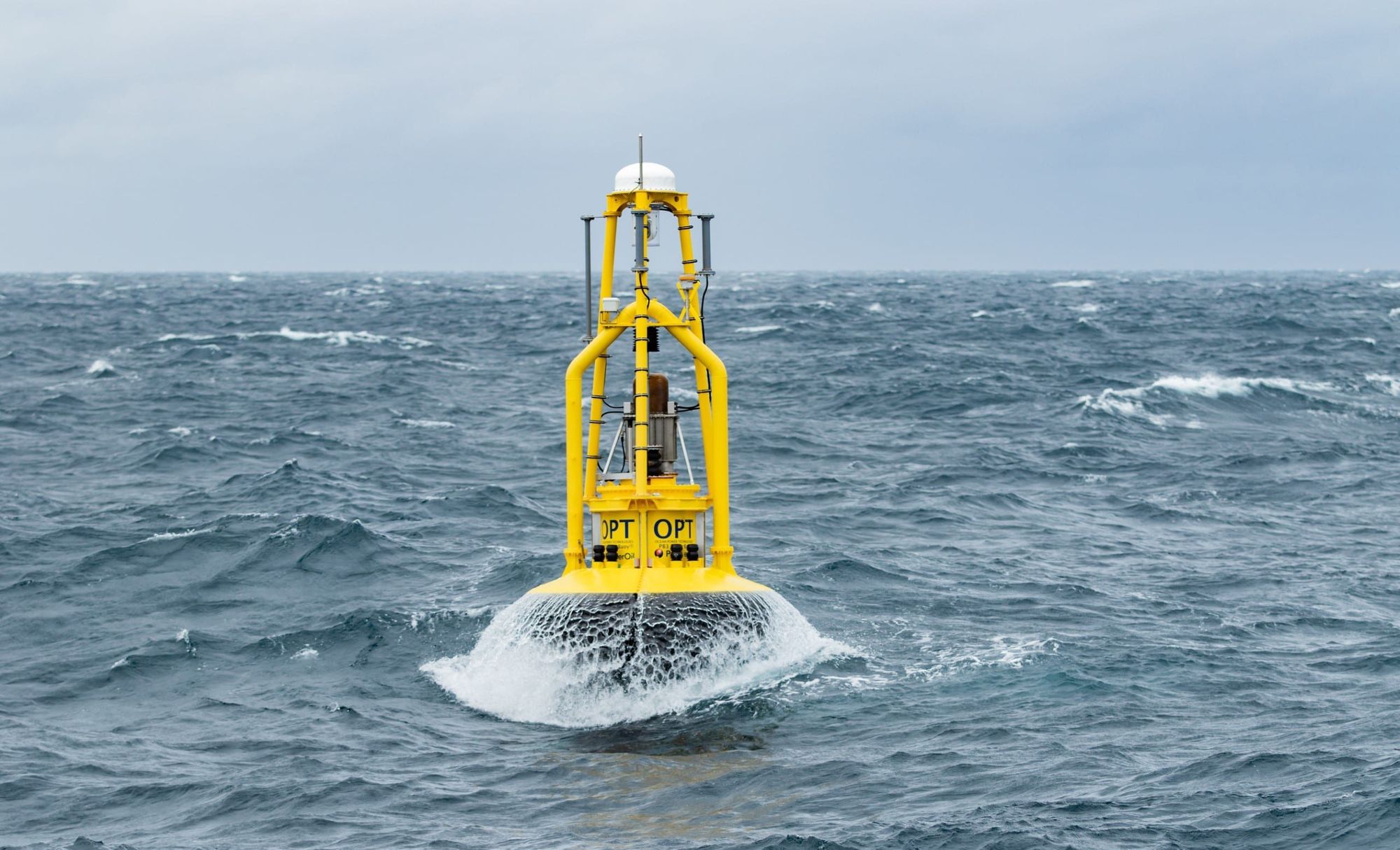
Mención
Enel Green Power installs the first full-scale wave energy converter in Chile
25 abril, 2021


